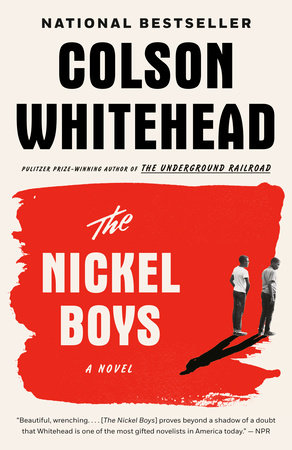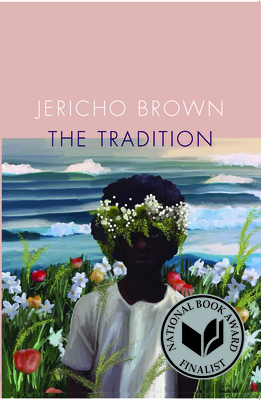This past [Monday, May 4 ] the Pulitzer administrator, Dana Canedy, streamed the Pulitzer Prize announcement for the 22 Pulitzer Prize winners in Journalism and the Book, Drama, and Music categories along with an awarded Special Citation to Ida B. Wells.
In the categories, Letters, Drama, and Music these Royal Men came out on top this year in Fiction, Drama, and Poetry.
 In Fiction, Colson Whitehead won his second Pulitzer Prize for his novel, The Nickel Boys. This novel is about fictional character Elwood Curtis attempting to survive abuse treatment in real-life Florida reform school as a student during the Jim Crow-era weaving a powerful tale of dignity, redemption, and human perseverance. Born and raised in Manhattan in the early 1970s, Whitehead graduated from Harvard College and worked at the Village Voice, where he wrote reviews for television, music, and books. He earned his first Pulitzer Prize, the National Book Award, and the Carnegie Medal for Fiction in the summer of 2016 for his book, The Underground Railroad, which became a #1 New York Times Bestseller. Many of Colson Whitehead’s reviews, essays, and fictitious works have appeared in multiple publications, such as the New York Times, The New Yorker, New York Magazine, Harper’s, and Granta.
In Fiction, Colson Whitehead won his second Pulitzer Prize for his novel, The Nickel Boys. This novel is about fictional character Elwood Curtis attempting to survive abuse treatment in real-life Florida reform school as a student during the Jim Crow-era weaving a powerful tale of dignity, redemption, and human perseverance. Born and raised in Manhattan in the early 1970s, Whitehead graduated from Harvard College and worked at the Village Voice, where he wrote reviews for television, music, and books. He earned his first Pulitzer Prize, the National Book Award, and the Carnegie Medal for Fiction in the summer of 2016 for his book, The Underground Railroad, which became a #1 New York Times Bestseller. Many of Colson Whitehead’s reviews, essays, and fictitious works have appeared in multiple publications, such as the New York Times, The New Yorker, New York Magazine, Harper’s, and Granta.
 A Strange Loop, by Michael R. Jackson won the Pulitzer for Drama as a metafictional musical about a gay black man working as an usher at a Broadway show, writing a musical about a gay black man working as an usher at a Broadway show in a strange loop as a young artist struggles against his own demons. Jackson holds a Bachelor of Fine Arts and a Masters of Fine Arts in playwriting and Musical Theatre Writing from the NYU Tisch School of the Arts. He wrote the book, music, and lyrics for the musical, White Girl In Danger, as well as writing the lyrics and book for the musical adaption of the 2007 horror film Teeth.
A Strange Loop, by Michael R. Jackson won the Pulitzer for Drama as a metafictional musical about a gay black man working as an usher at a Broadway show, writing a musical about a gay black man working as an usher at a Broadway show in a strange loop as a young artist struggles against his own demons. Jackson holds a Bachelor of Fine Arts and a Masters of Fine Arts in playwriting and Musical Theatre Writing from the NYU Tisch School of the Arts. He wrote the book, music, and lyrics for the musical, White Girl In Danger, as well as writing the lyrics and book for the musical adaption of the 2007 horror film Teeth.
 For the Poetry category, the Pulitzer Prize went to Jericho Brown for his work, The Tradition. A soulful collection of innovative lyrical poems that combine delicacy and historical urgency in a loving induction of vulnerability to hostility and violence. The Tradition is born from real-life urgency of how and why people have become accustomed to terror the most personal and public of places ranging from mass shootings to the murder of unarmed people by police, and everything in between. Since the writing of his first book, Please, in 2008, Brown has won multiple awards ranging from the Whiting Award, the American Book Award, and has been the recipient of several fellowships with the Guggenheim Foundation fellowship, the National Endowment for the Arts, and had many of his poems appear in various publications.
For the Poetry category, the Pulitzer Prize went to Jericho Brown for his work, The Tradition. A soulful collection of innovative lyrical poems that combine delicacy and historical urgency in a loving induction of vulnerability to hostility and violence. The Tradition is born from real-life urgency of how and why people have become accustomed to terror the most personal and public of places ranging from mass shootings to the murder of unarmed people by police, and everything in between. Since the writing of his first book, Please, in 2008, Brown has won multiple awards ranging from the Whiting Award, the American Book Award, and has been the recipient of several fellowships with the Guggenheim Foundation fellowship, the National Endowment for the Arts, and had many of his poems appear in various publications.
The Special Citation went to Ida B. Wells as an early pioneer for her investigative journalism and civil rights icon. Honoring Ida for her courageous reporting on the horrors and vicious violence against African Americans during the 19th and 20th centuries when lynching was prominent. The citation comes with a legacy by the Pulitzer Prize Board members of at least $50,000 in support of Wells’ mission.

